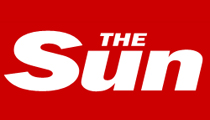This website uses cookies so that we can provide you with the best user experience possible. Cookie information is stored in your browser and performs functions such as recognising you when you return to our website and helping our team to understand which sections of the website you find most interesting and useful.
Business News Digital Media
The Sun pulls down its paywall
By Chris Cooke | Published on Monday 2 November 2015

The Sun is pulling down its paywall, with a new plan to offer most of its online content for free. The move – which follows the return of the tabloid’s former Editor and CEO, Rebekah Brooks, to the top job at its publisher News UK – is the latest chapter in the UK newspaper industry’s long-drawn out efforts to make online news pay.
Other than business title the Financial Times, all the British newspapers initially decided to make their online content available for free, hoping that freebie news and features could generate sufficient traffic so that – given the lower overheads of digital publishing – they could sell enough ads to go into profit once internet advertising started to gain momentum.
They soon found themselves facing competition for that online advertising dollar from the likes of Google and Facebook, which boast phenomenal traffic without any of the costs of having to produce daily content. This has created challenges for all the newspaper owners, whose print businesses continue to decline, making the need to find a profitable online business model increasingly urgent.
Many feel that, long-term, online news – like print news – needs both subscription and advertising revenues to make a profit, but it’s no secret that persuading people to pay for online content is a challenge. News UK led to way by putting the online side of its broadsheet title The Times behind a paywall in 2010, so that pretty much no content could be accessed without buying a subscription. It’s still not clear whether that strategy has entirely worked, though it’s certainly not been a complete failure.
Sister title The Sun followed suit in 2013, hoping to woo subscribers with promises of football exclusives. But as a tabloid, The Sun faced more challenges than The Times, not least that the tabloid newspaper business is more of a numbers game, and would need to attract many more subscribers than its broadsheet counterpart to be successful.
Also, online – unlike in print – The Sun competes head-on with the Mail when it comes to celebrity news, and Mail Online, by allowing analytics to drive editorial, has sped ahead of all its rivals in the web domain. Plus The Sun, more so than The Times, also competes with online-only news sites like Huffington Post and Buzzfeed.
Whatever, earlier this year The Sun announced its online election coverage would sit outside the paywall, and since then an increasing amount of the paper’s content has been available online for free. And on Friday, Brooks told the tabloid’s staff that the paywall would come down completely at the end of this month, with only a few premium online products still requiring a subscription.
Brooks wrote: “I recently shared with you the future priorities for the company and am excited today to tell you more about our plans for the first of these: growing the Sun’s audience. This will mean setting The Sun predominantly free in the digital world from 30 November. By happy coincidence, this is also Cyber Monday, one of the best-performing days of the year for online retail”.
Whether the freebie Sun website can now win over readers and advertisers from its bigger (online) competitors remains to be seen.
Meanwhile, this decision may convince all but the more serious news sites that the subscription route is not a viable option, even though its far from assured that advertising alone can support any prolific online news operation, most of which are current loss-making. Some reckon so called content marketing – where brands pay more to have involvement in editorial output – is the solution, though for old school journalists, that’s not an attractive solution.





